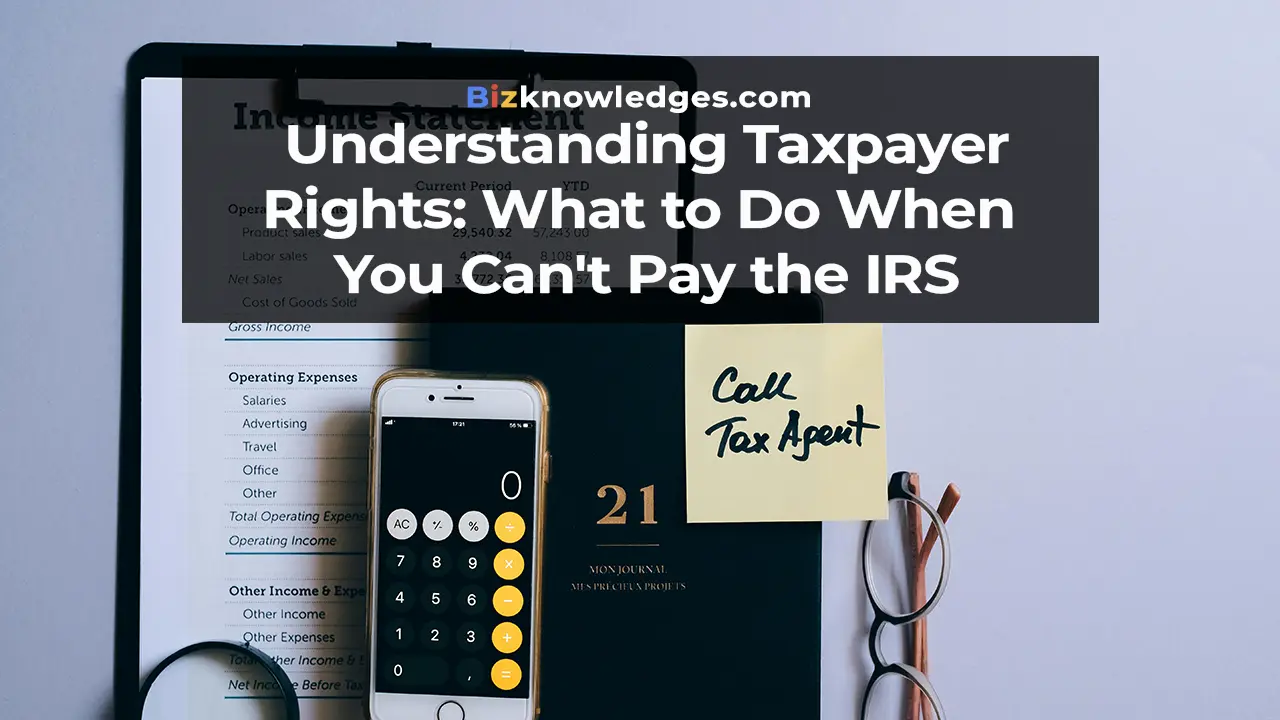Understanding Taxpayer Rights: What to Do When You Can’t Pay the IRS

Facing the reality of an IRS tax bill you can’t afford to pay can be overwhelming. Many taxpayers fear repercussions such as penalties, interest accrual, or even legal action. However, it’s crucial to remember that the IRS provides pathways to manage such situations and protect your financial well-being. Whether you’re dealing with a temporary setback or a more prolonged financial challenge, knowing your rights and the available solutions can help you navigate this difficult time. Programs such as hardship distribution offer relief and ensure taxpayers aren’t left without options in times of need.
Your Rights as a Taxpayer
Under the Taxpayer Bill of Rights, the IRS offers taxpayers special rights to prevent unfair treatment of individuals and companies. These rights include the right to be informed, the right to pay no more than the correct amount of tax, and the right to appeal to the IRS. It is even more important when one cannot pay the taxes, and the right to ask for help and challenge the decisions is at stake. There are such rights not to damage taxpayers and put them in an unfavorable position because of the circumstances they cannot influence.
For instance, if you cannot pay, the IRS cannot take your property or cut your wages without going through legal procedures. They must inform you of your debt and explain possible remedies. Knowledge of these rights makes you act confidently because the system is designed to provide solutions rather than penalties.
Options for Tax Relief
If you cannot pay your tax bill in one lump sum, several relief options depend on the individual’s situation. The IRS provides the option of an installment agreement whereby the taxpayer can pay his or her debt in small and equal monthly installments. This is usually a preferred choice by people with regular income but with many problems to solve.
The IRS Hardship Program benefits those in even worse financial situations because it only stops the collection process. This option recognizes that some taxpayers cannot pay due to an emergency, such as job loss, hospital bills, or any other eventuality. To be considered, you must attach copies of your financial statements showing your inability to generate the amount.
The second option is the Offer in Compromise (OIC), which enables taxpayers to pay their tax liability in an amount less than the total amount they owe. As much as possible for some people, this involves passing several requirements and assessing the person’s financial status. Thus, the programs aim to present taxpayers with options to address their situations and needs.
How to Take Action
The first thing you need to do to deal with your tax issues is to stay active. Failure to respond to any IRS notice or delaying action results in a worse position, with penalties and interest added to your account. Start with the basic evaluation of your financial situation and collect all the relevant papers, including income, expenses, and assets. This information is essential because it will help you decide which of the relief programs best suits your needs.
Then, contact the IRS on your own or speak with a tax professional who will help you complete the application for other programs such as installment agreements, hardship, or an OIC. A tax professional can also assist you with understanding how the IRS communicates with taxpayers and safeguard your rights every time. Document all correspondence with the IRS in the future because it is important to be as open and honest as possible in dealing with the IRS.
Conclusion
It is always embarrassing to be unable to pay your taxes, but this is not a situation that you have to lose the house to. Knowledge of your taxpayer rights and the possible relief measures will put you in a position to deal with your future independently and reduce stress levels. Installment agreements, the Hardship Program, and Offer in Compromise guarantee taxpayers have no unbearable options to pay off their debts. You can pay off your taxes and get on a better financial footing if you take action and ask for help if necessary.
